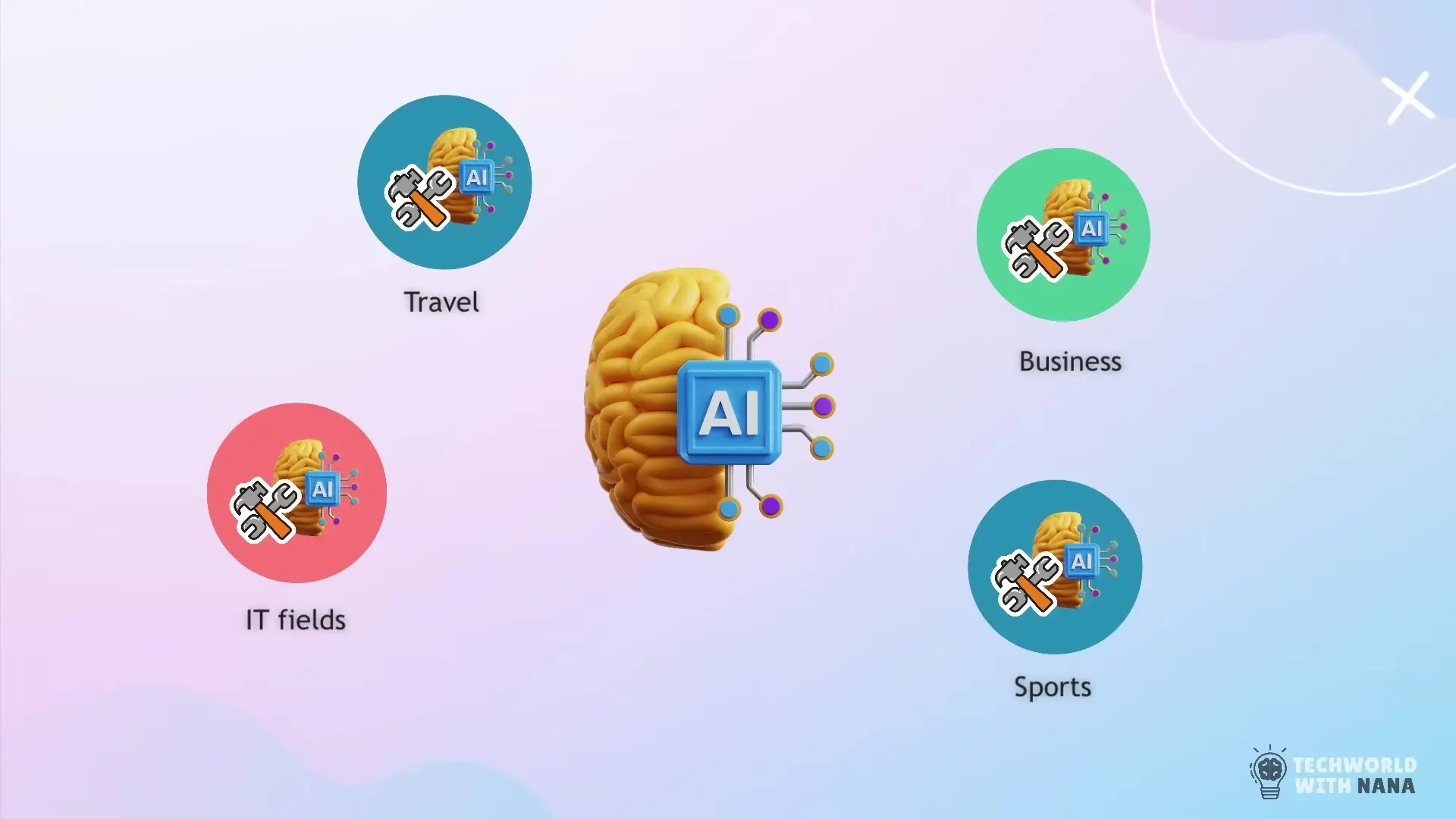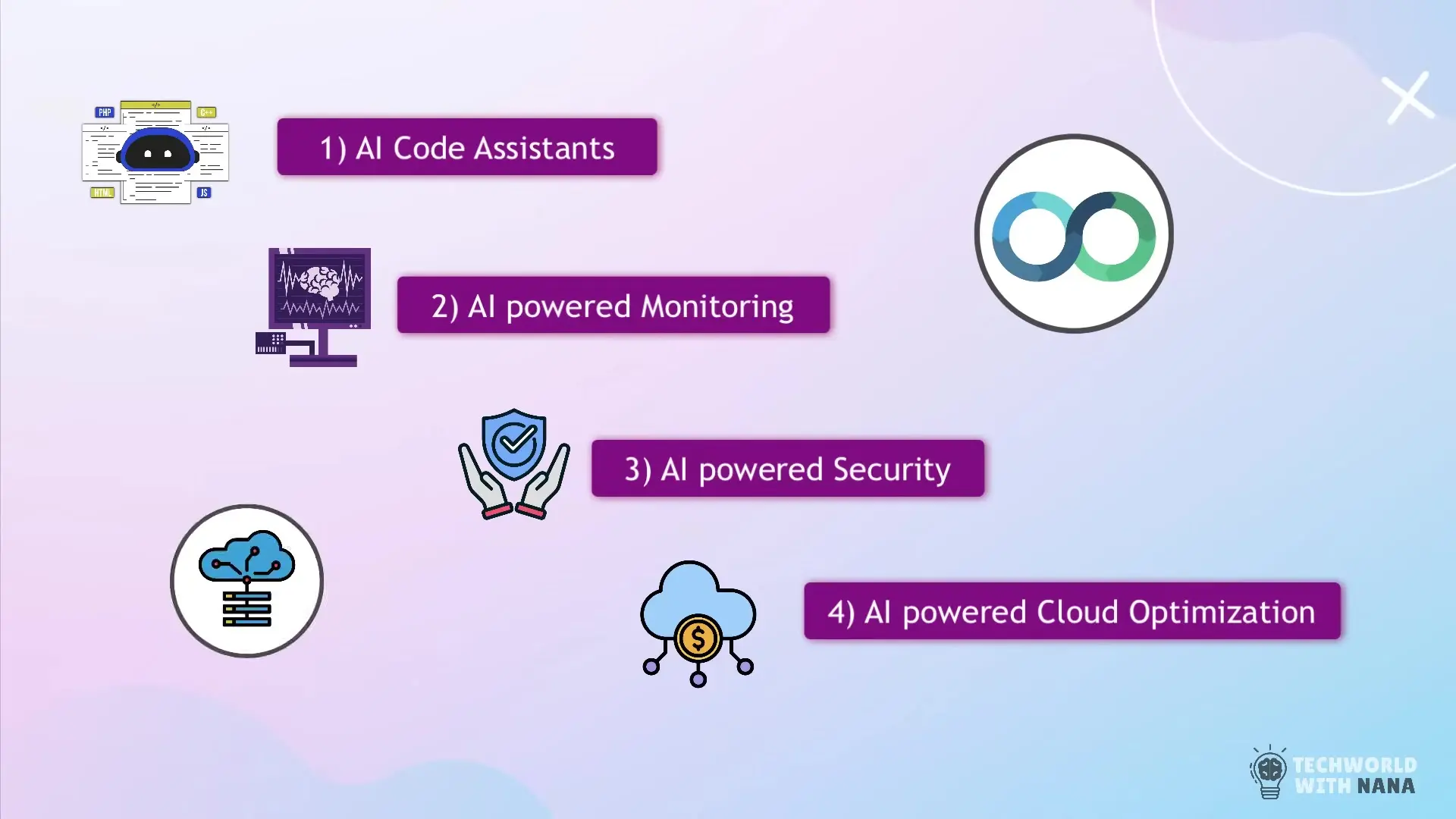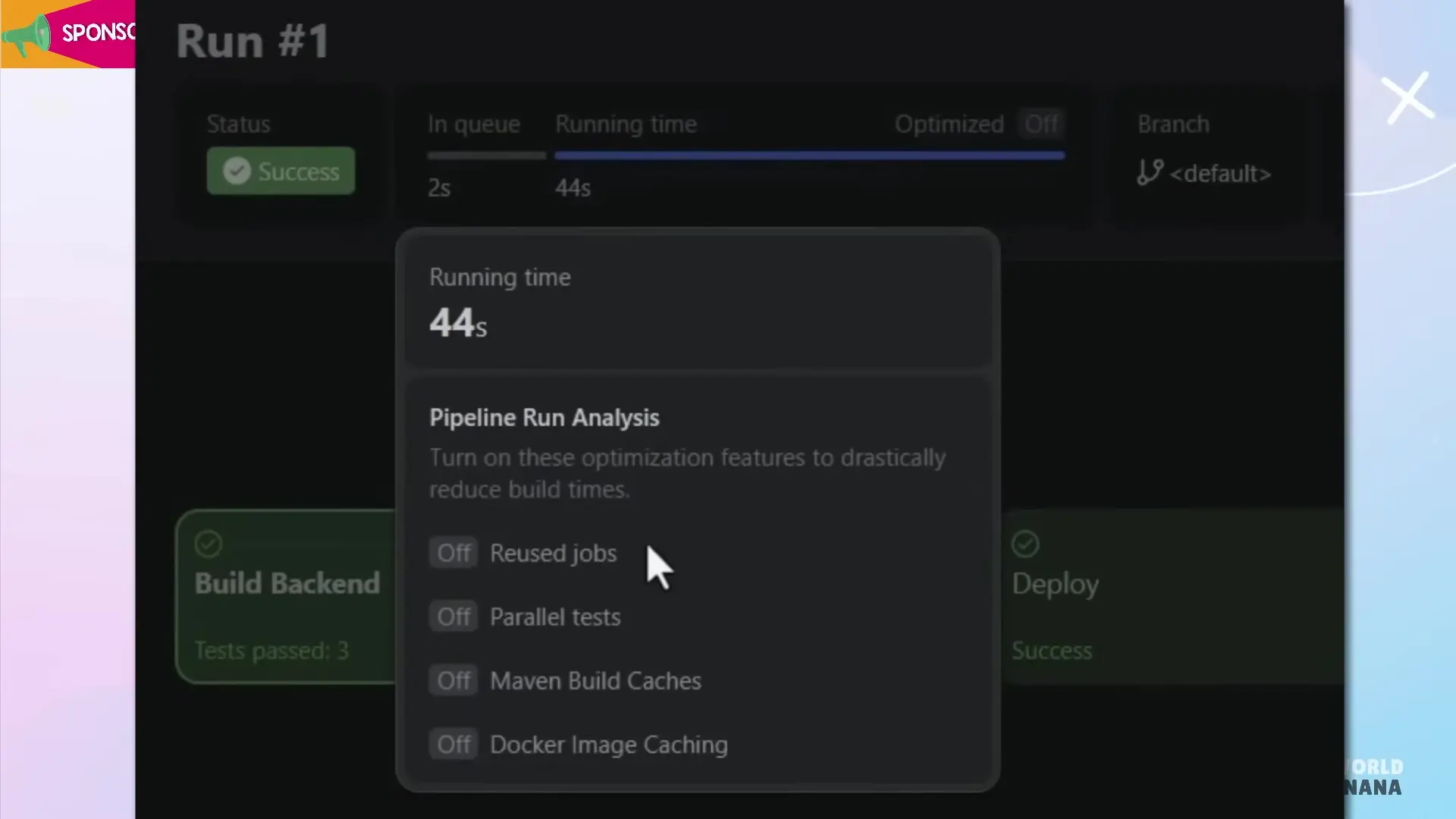
AI is revolutionizing the DevOps landscape, with specialized tools emerging to enhance efficiency across monitoring, security, and automation workflows. However, not all AI solutions deliver on their promises. This article explores practical AI tools for DevOps engineers that provide tangible benefits based on real-world implementation experience.

DevOps fundamentally revolves around automation and efficiency—whether deploying new features, securing infrastructure, or proactively monitoring systems. The integration of AI into these workflows promises to take automation to new heights, but the reality is more nuanced than vendor marketing suggests. Let's examine the most practical AI tools for DevOps engineers based on actual implementation experience.
AI Code Assistants for Infrastructure as Code
AI code assistants represent one of the most accessible entry points for DevOps engineers looking to leverage artificial intelligence in their workflows. These tools excel particularly in infrastructure as code (IaC) and configuration management scenarios.
GitHub Copilot stands out as a popular option in this category, offering intelligent code suggestions directly within your preferred IDE. The primary benefits include:
- Context-aware code completion for Terraform, CloudFormation, and other IaC tools
- Natural language processing that converts plain English descriptions into functional code blocks
- Code refactoring suggestions to improve infrastructure definitions
- Explanations of complex infrastructure code for better team understanding
For example, a junior engineer joining a team with extensive Terraform configurations can use these AI assistants to understand existing code or generate new infrastructure components based on requirements. This significantly accelerates the onboarding process and helps maintain consistency across infrastructure definitions.
However, these tools come with important limitations. The generated code often requires significant validation and modification before it can be implemented in production environments. In many cases, you'll need to cross-reference with official documentation to ensure accuracy and best practices are followed.
Alternative options include Amazon Q and specialized AI-powered code editors like Cursor, which offers enhanced project context awareness for more precise code suggestions.
AI-Powered Monitoring Tools for Proactive Operations
Monitoring represents perhaps the most valuable application of AI in DevOps environments. Modern infrastructure can include thousands of servers and tens of thousands of components, making manual observation impossible and traditional threshold-based alerting insufficient.
Datadog's Watchdog exemplifies the potential of AI in this space. This intelligence layer continuously analyzes billions of data points across your infrastructure, applications, and platform to identify issues proactively and accelerate resolution.
- Anomaly detection that identifies unusual patterns before they cause outages
- Root cause analysis that pinpoints the specific component causing an issue
- Correlation analysis that understands relationships between services
- Predictive analytics that forecasts potential issues based on historical trends
The strength of AI-powered monitoring lies in its ability to analyze massive historical datasets and identify correlations between systems that human operators might miss. This enables teams to address issues before they impact users and dramatically reduces mean time to resolution (MTTR) when incidents do occur.

CI/CD Pipeline Optimization with AI
Continuous integration and continuous delivery (CI/CD) pipelines represent the heart of DevOps automation. AI tools in this space focus on optimizing pipeline performance and developer productivity.
TeamCity Pipelines offers intelligent pipeline optimization through self-tuning capabilities. The platform provides built-in suggestions to improve pipeline efficiency while you're configuring workflows.

Key features include:
- Intelligent suggestions for pipeline optimization
- Automatic identification of parallelization opportunities
- Caching recommendations to reduce build times
- Infrastructure-as-code export capabilities that save optimized configurations to your repository
The ability to configure pipelines through an intuitive UI with AI-powered suggestions, then export the configuration as YAML files for version control, combines the best of both worlds—ease of use with DevOps best practices.
AI-Enhanced Security Tools for Cloud Infrastructure
Security represents another domain where AI can provide significant value to DevOps teams. AI-powered security tools can identify vulnerabilities, detect anomalous behavior, and even implement automatic remediation in some cases.
Sysdig exemplifies this approach, using machine learning and advanced analytics to provide proactive security monitoring for containerized environments. In today's DevOps landscape where containers are standard, this specialized focus delivers significant value.
- Runtime threat detection that identifies suspicious container behavior
- Vulnerability management across container images
- Compliance monitoring for containerized workloads
- Automatic remediation capabilities for common security issues
The ability to automatically identify and potentially fix security issues before they can be exploited represents a significant advancement over traditional security approaches that rely on periodic scanning and manual remediation.
Practical Limitations of AI Tools in DevOps
While AI tools offer compelling benefits for DevOps engineers, it's important to understand their current limitations:
- Most AI-generated code requires significant human validation and modification
- AI tools work best as assistants rather than autonomous operators
- The quality of AI output depends heavily on the quality and quantity of training data
- Many tools are still maturing and may not handle edge cases effectively
- Integration with existing toolchains can be challenging
The most effective approach to AI in DevOps is to view these tools as powerful assistants rather than replacements for human expertise. They excel at analyzing large datasets, identifying patterns, and generating initial solutions—but still require human oversight and validation.
Conclusion: A Balanced Approach to AI in DevOps
AI tools for DevOps engineers offer significant potential to enhance productivity and system reliability, but they require a thoughtful implementation approach. The most valuable applications currently include:
- AI-powered monitoring for anomaly detection and root cause analysis
- Security tools that proactively identify and remediate vulnerabilities
- CI/CD pipeline optimization through intelligent suggestions
- Code assistants that accelerate infrastructure as code development
As these technologies mature, their capabilities will continue to expand. However, the fundamental DevOps principle of "concepts before tools" remains essential. Engineers should focus first on understanding core DevOps practices and challenges, then strategically apply AI tools to address specific pain points.
By maintaining this balanced approach, DevOps teams can leverage AI to enhance their capabilities while avoiding the pitfalls of over-reliance on immature technologies. The future of DevOps will likely involve increasingly sophisticated AI assistants working alongside skilled engineers—combining the pattern recognition and data processing capabilities of AI with the contextual understanding and creativity of human experts.
Let's Watch!
4 Best AI Tools for DevOps Engineers That Actually Deliver Results
Ready to enhance your neural network?
Access our quantum knowledge cores and upgrade your programming abilities.
Initialize Training Sequence